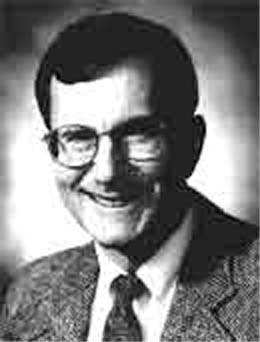
Allan Winkler says his experience in the Peace Corps led him to decide to study American history
Foreign study can be dangerous, but benefits abound
Guest column by Allan Winkler
Like most people, I was horrified to learn about the two Antioch students killed in Costa Rica recently. Any such episode is awful, but the one that took the lives of Emily Howell and Emily Eagen hit even closer to home.
Several years ago, my daughter Jenny spent six months in Costa Rica after graduating from college. She flew to San Jose, and stayed there for a while, then worked her way around the island to a nature preserve in a rain forest, where she found a job. I worried about her being there on her own, but she needed the time to do what she wanted, and it turned out to be a good experience in every way.
Yet this most recent tragedy resonated for another reason. My wife Sara and I just returned from taking 19 Earlham College students on a semester-long foreign study program in Kenya. We were responsible for all the logistics, and shepherded the students around the country, paying as much attention as we possibly could to issues of safety. But we still worried 24 hours a day about what could happen, especially when they went off on independent travel expeditions on their own.
Accidents do happen. Tragedies do occur. Just last year, Elizabeth Garland, daughter of Miami University President James C. Garland, was doing field work for her doctoral dissertation in the mountains of Uganda when rebels slaughtered many of the people in her group. She was lucky to escape, and wrote eloquently about her experience in the Chronicle of Higher Education just before returning to the field.
Yet as unfortunate as these episodes are, we should still keep up our efforts to encourage Americans to travel abroad. We can and should take precautions. But the value of foreign study - and foreign travel - must be held up against the risks.
There is an old adage I first heard when I taught in The Netherlands for a year. What do you call someone who speaks three languages? Trilingual. What do you call someone who speaks two languages? Bilingual. What do you call someone what speaks one language? American. We Americans are notoriously ethnocentric, and culturally and linguistically insensitive. The experience of living abroad, learning another language, and functioning in an altogether different society is one of the most valuable things a student can do.
Traveling abroad is wonderful, but it usually takes an extended time to begin to learn something about another culture. I was grateful to have two years in the Peace Corps back in the 1960s. As I struggled to live and work in the Philippines, the second year was immeasurably better than the first. When I taught in Finland for a year, and later in The Netherlands for another year, I watched my children adjust in a process that usually took at least six months. In both cases I was grateful we could enjoy the time that followed the period of adjustment.
Perhaps even more important, living abroad encourages us to reflect more thoughtfully about our own lives back home. Learning to live in new ways forces us to examine the patterns we all too often take for granted.
My experience in the Peace Corps led me to decide to study American history. Working in Southeast Asia at the height of the Vietnam War, I needed to understand what my own country was trying unsuccessfully to do in that far off part of the world.
Last semester, Sara and I watched our students working through similar questions. As they lived for three weeks with families in rural Kenya, in homes that lacked both electricity and running water, they were forced to ask - and answer - questions about their far more comfortable lives in the United States. And in so doing they developed a greater sense of empathy for their host families and a greater sense of understanding of themselves.
We still worried about them all the time, and will continue to worry each time we return.
But Miami will continue to send students to its campus in Luxembourg and on other programs, and Earlham will continue to send students to Kenya and elsewhere, for the experience gained by studying abroad can be gotten nowhere else.
Allan M. Winkler is a history professor at Miami University and a frequent contributor to these pages.

